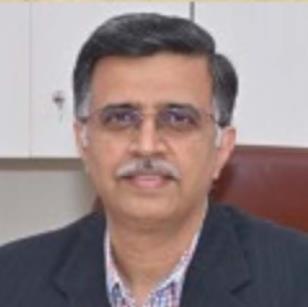Converse Modulation of Wnt/β-Catenin Signaling During Expansion and Differentiation Phases
Wednesday, January 10, 2024
2:30 PM-4:00 PM
BIOMED Seminar
Title:
Converse Modulation of Wnt/β-Catenin Signaling During Expansion and Differentiation Phases of Infra Patellar Fat Pad-derived MSCs for Improved Engineering of Hyaline Cartilage
Speaker:
Professor Dhirendra S. Katti, PhD
Dean of International Relations
Rajeeva and Sangeeta Lahri Chair Professor
Department of Biological Sciences & Bioengineering
Indian Institute of Technology Kanpur (IITK)
Details:
Mesenchymal stem cells (MSCs) are potential candidates in cell-based therapy for cartilage repair and regeneration. However, during chondrogenic differentiation, MSCs undergo undesirable hypertrophic maturation. This poses a risk of ossification in the neo-tissue formed that eventually impedes the clinical use of MSCs for cartilage repair. TGF-β is a potent growth factor used for chondrogenic differentiation of MSCs, however, its role in hypertrophy remains ambiguous. In the present work, we decipher that TGF-β activates Wnt/β-catenin signaling through SMAD3 and increases the propensity of Infrapatellar fat pad derived MSCs (IFP-MSCs) towards hypertrophy.
Notably, inhibiting TGF-β induced Wnt/β-catenin signaling suppresses hypertrophic progression and enhances chondrogenic ability of IFP-MSCs in plasma hydrogels. Additionally, we demonstrate that activating Wnt signalling during expansion phase, promotes proliferation and reduces senescence, while improving stemness of IFP-MSCs. Thus, conversely modulating Wnt signaling in vitro during expansion and differentiation phases generates hyaline-like cartilage with minimal hypertrophy.
Importantly, pre-treatment of IFP-MSCs encapsulated in plasma hydrogel with Wnt modulators followed by subcutaneous implantation in nude mice resulted in formation of a cartilage tissue with negligible calcification. Overall, this study provides technological advancement on targeting Wnt/β-catenin pathway in a 3D scaffold, while maintaining the standard chondro-induction protocol to overcome the challenges associated with the clinical use of MSCs to engineer hyaline cartilage.
Biosketch:
Professor Katti currently holds the position of Dean of International Relations and is the Rajeeva and Sangeeta Lahri Chair Professor at the Department of Biological Sciences and Bioengineering (BSBE), IIT Kanpur.
He received his BSc in Chemistry from Fergusson College, Poona University (1990); BSc Tech in Chemical Technology from Institute of Chemical Technology (ICT), Mumbai (1993); and PhD in Chemistry from Bombay University (1999) [worked at CSIR - Indian Institute of Chemical Technology (IICT), Hyderabad].
He then worked at the laboratory of Prof. Cato T. Laurencin as a post-doctoral fellow at Drexel University, Philadelphia, USA (1999-2001) and subsequently as a Research Assistant Professor also at Drexel University (2001-2003). Dr. Katti then moved on as Assistant Professor (Tenure Track) at the Department of Orthopaedic Surgery and the Department of Biomedical Engineering at The University of Virginia, Charlottesville, USA (2003-2004).
Dr. Katti returned to India in 2004 as Assistant Professor at the BSBE Department of IIT Kanpur and rose through the ranks to become Professor in 2012. He was Head of the BSBE Dept. from 2016-2019 and was the Gireesh Jankinath Chair Professorship from 2018-2021. He was the Chairman of JEE for 2019 and 2020 and helped conduct the JEE nationwide in India during the challenging times of COVID19.
Prof. Katti serves on the editorial board of Journal of Biomedical Nanotechnology (American Scientific Publishers) and Trends in Biomaterials and Artificial Organs (India) and served as the Associate Editor (Asia) of International Journal of Nanomedicine (Dove Press) 2009-2016.
Prof. Katti is the recipient of the prestigious Tata Innovation Fellowship by Department of Biotechnology (2023) and is an elected Fellow of the Society of Biomaterials and Artificial Organs (FBAO) India (2023).
His research interests are in the areas of Biomaterials, Drug Delivery Systems, Tissue Engineering, Nano-biotechnology, Nanomedicine, Drug Target Identification, and Disease Model Systems.
Contact Information
Lisa Williams
ltw22@drexel.edu

Location
Papadakis Integrated Sciences Building (PISB), Room 106, located on the northeast corner of 33rd and Chestnut Streets.
Audience